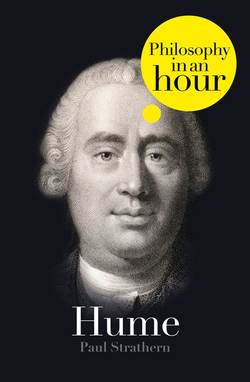Читать книгу Hume: Philosophy in an Hour - Paul Strathern - Страница 4
Introduction
ОглавлениеBefore Hume, philosophers were often accused of being atheists. Hume was the first one who admitted it.
Being judged an atheist was not an enviable accolade for philosophers, or anyone else. Society had a way of dealing with such unorthodox thinkers – from ancient Greece (poison) to the Middle Ages (the Inquisition). Philosophers thus went to great lengths to convince everybody (and themselves) that they were not atheists. Hume’s admission of theological bankruptcy was treated as a public scandal – but attempts to dissuade him were made with philosophical argument rather than the rack. This says as much for the tolerance of eighteenth-century British society as it does for Hume. Yet if he wished to remain consistent with his philosophy, Hume could have taken no other stance.
Philosophy was a long time coming to this. Several philosophers of the ancient world – such as some Stoics and a few cynics – were close to it. But Socrates was sentenced to death for not respecting the gods, and in ancient Rome it was often impossible not to believe in a god (especially when he was also the emperor). Thus faith became essential – for those who wished to continue thinking, just as much for those who wished to continue at all.
Early in the Christian era, philosophy was swallowed whole by theology. Plato and Aristotle became the holy writ, and philosophy consisted largely of elaborations on such accepted texts. These were followed by elaborations on the elaborations, and much heroic work rendering these elaborations acceptable to Christian dogma. A sideline developed with the misuse of logic in trying to prove the existence of God. A certain amount of all this activity was extremely ingenious, and even creative. But it was not original. The basic assumptions were always the same.
These assumptions were first seriously questioned in the seventeenth century by Descartes, who is now regarded as the founder of modern philosophy. Descartes swept aside the old assumptions and based his philosophy upon reason rather than faith. By a process of rational doubt, he showed that it is possible to deny everything – with one exception. I cannot doubt everything and yet at the same time doubt that I am thinking. ‘I think, therefore I am,’ was his celebrated conclusion. Thus Descartes reached the bedrock upon which he built the rational structure of his philosophy.
Just half a century later, the British philosopher John Locke went one step further with the introduction of empiricism. This claimed the ultimate ground of philosophy lay not in reason but in experience. In Locke’s view, all that we know is gained ultimately from experience. We have no innate ideas – just sensations, and the ideas we gain from reflecting on these sensations. It looked as if philosophy had reached its limit.
But it wasn’t long before someone took this one step further. The British empirical tradition took a step over the edge of sanity with the arrival of the Irishman Berkeley. If our knowledge of the world is based only on experience, how can we know that the world exists when we’re not perceiving it? The world was thus reduced to a figment, and philosophy to a laughing stock. But fortunately for the world, Berkeley was a bishop and a God-fearing man. Of course the world continued to exist, he declared, even when no one was perceiving it. How could this be? Because the world was always being perceived by God.
This philosophical sleight of hand saved Berkeley a lot of trouble (and not only with his archbishop and his congregation). The world now had a prop. This was to last just thirty years, until Hume entered the fray.
